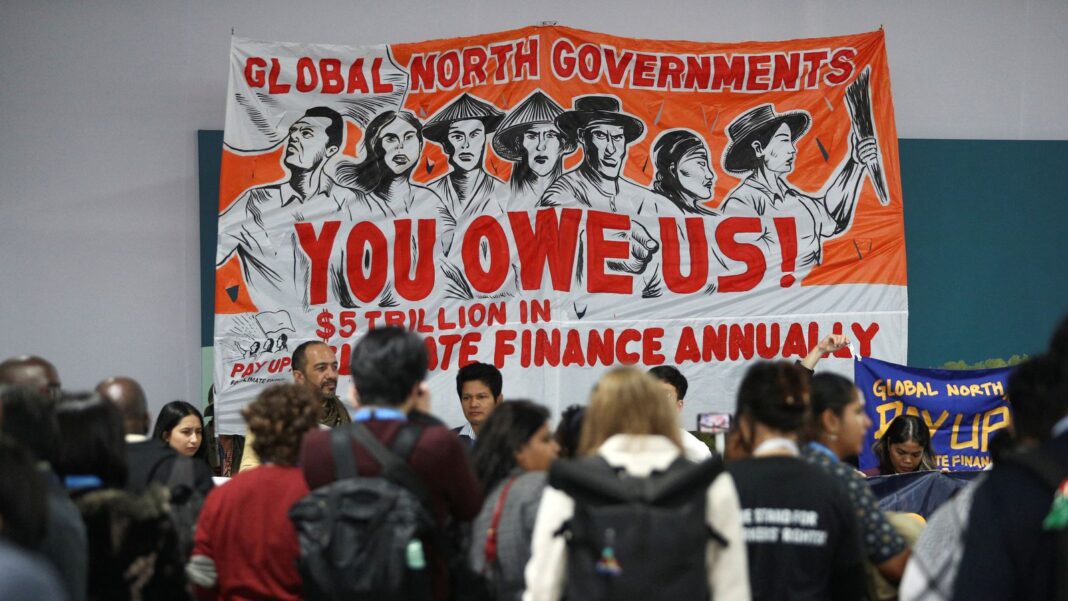Countries have reacted furiously to a stash of draft deals published at the COP29 climate summit in Azerbaijan.
With just 36 hours until the two-week negotiations are due to end, countries are still at loggerheads on key issues including money, fossil fuels and gender.
The number one item on the table is a new financial target to pay for climate measures in developing countries, known as “climate finance”.
The draft agreement still lists widely different options for all the most controversial issues, including which countries pay in, where the money comes from, and how many billions of dollars they’re aiming for.
Instead of specifying a number for the target, it simply states: “At least USD [X] trillion of dollars annually”.
Developing countries need about $1.3trn (£1trn) a year to help them switch from polluting fossil fuels to clean sources, and to make them more resilient to increasingly extreme weather.
But developed countries have hinted that they see a more realistic goal as less than half that figure.
They have refused to put a number on it until they have agreed where all the money could come from. The current target, which expires next year, is $100bn.
Developing countries, which are being hammered by impacts of climate change they did not cause, think rich countries are being obstructive and failed to do their maths in advance.
Read more:
Watch: ‘Structure of future COPs needs to change’
Argentina walks away from COP29
‘All we have right now is a blank piece of paper’
Mohamed Adow, director of thinktank Power Shift Africa, said: “The elephant in the room is the lack of specific numbers in the text. This is the ‘finance COP’. We came here to talk about money.
“The way you measure money is with numbers. We need a cheque, but all we have right now is a blank piece of paper.”
Please use Chrome browser for a more accessible video player
1:15
‘We need to address the scale of climate crisis’
Sleep-deprived diplomats from almost 200 countries were poring over the documents on Thursday morning, racing to make sense of them before further meetings in the capital, Baku.
A draft agreement on cutting emissions barely references last year’s “historic” pledge to transition away from fossil fuels, let alone progress on it.
This has outraged the EU, the US, small island nations and the UK, but will buoy a group of oil and gas producers, led by Saudi Arabia, that have tried to bury that pledge.
“This is a big step back, and it is not acceptable at this moment of crisis,” Australia’s climate minister Chris Bowen said.
Asked when rich countries would budge on the number, Eamon Ryan, part of the EU’s team, said: “We all budge together.”
He added: “If we do not get ambition on [cutting emissions], everything else fails.”
Saudi Arabia accused them of “cherry-picking” issues.
COP29 is due to wrap up on Friday evening, but now looks likely to run into overtime.







